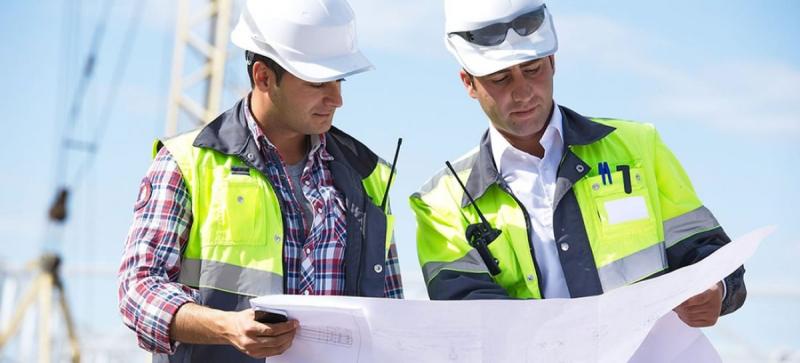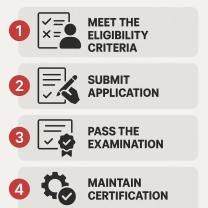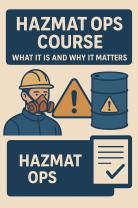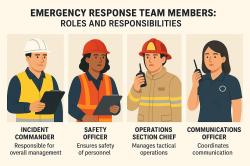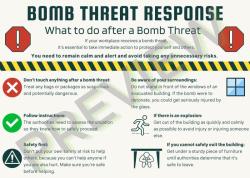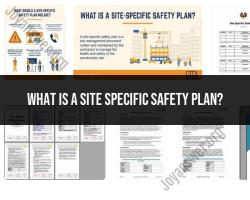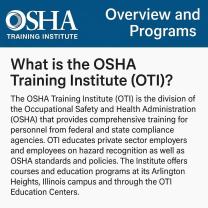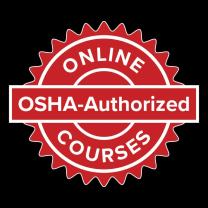What are the requirements to become a site safety manager?
Becoming a site safety manager typically involves a combination of education, experience, and certifications. The specific requirements can vary based on industry, location, and employer preferences, but here are common qualifications and prerequisites for a site safety manager role:
Education:
- A bachelor's degree in occupational health and safety, environmental science, engineering, or a related field is often preferred. Some employers may accept degrees in other relevant disciplines coupled with relevant work experience.
Experience:
- Relevant work experience in the field of safety is crucial. Many employers prefer candidates with several years of experience in safety roles, such as safety officer, safety coordinator, or related positions.
- The amount of required experience can vary, but it's common for employers to seek candidates with 3-5 years or more of practical experience.
Certifications:
- OSHA Certifications: Many employers require or prefer candidates with certifications from the Occupational Safety and Health Administration (OSHA). Common certifications include OSHA 30-Hour and OSHA 500.
- Certified Safety Professional (CSP): This certification, offered by the Board of Certified Safety Professionals (BCSP), is highly regarded in the safety field.
- Associate Safety Professional (ASP): Another certification from the BCSP, the ASP is often a precursor to obtaining the CSP.
Knowledge of Regulations:
- A thorough understanding of local, state, and federal safety regulations is essential. Site safety managers need to ensure that their workplaces comply with all relevant safety standards.
Communication Skills:
- Strong communication skills are crucial. Site safety managers must be able to convey safety information clearly to diverse audiences, including workers, management, and regulatory authorities.
Analytical Skills:
- The ability to analyze and assess risks, incidents, and safety procedures is important. Site safety managers need to identify potential hazards and develop strategies to mitigate them.
Leadership Skills:
- Site safety managers often lead safety meetings, conduct training sessions, and coordinate safety programs. Strong leadership skills are important for creating a safety-conscious culture within an organization.
Attention to Detail:
- Paying close attention to detail is essential in identifying potential safety hazards and ensuring that safety protocols are followed.
Problem-Solving Skills:
- Site safety managers should be adept at solving safety-related problems and implementing effective solutions to improve workplace safety.
Continuing Education:
- Staying updated on the latest developments in safety standards, technologies, and best practices is important. Pursue ongoing education and professional development opportunities.
Industry-Specific Knowledge:
- Depending on the industry (construction, manufacturing, healthcare, etc.), site safety managers may need specialized knowledge of industry-specific safety regulations and practices.
It's important to note that job requirements can vary, so it's advisable to review specific job listings and industry expectations in your region. Additionally, networking with professionals in the field and participating in relevant industry associations can provide valuable insights and opportunities for career advancement.
What qualifications or prerequisites are necessary to become a site safety manager?
Becoming a site safety manager takes a blend of education, experience, and personal qualities. Here's a breakdown of the key qualifications and prerequisites:
Education:
- Formal Education: While not always mandatory, a bachelor's degree in occupational health and safety or a related field like construction management, engineering, or environmental science is often preferred by employers. Master's degrees can give you a competitive edge for higher-level positions.
- Certifications: Earning relevant certifications is highly recommended and can significantly boost your resume. Popular options include Certified Safety Professional (CSP), Construction Health and Safety Technician (CHST), or Certified Industrial Hygienist (CIH). Check for regional or industry-specific certifications too.
- Training Programs: Look for courses or workshops covering safety management, risk assessment, accident investigation, and emergency response. Many professional organizations offer such programs.
Experience:
- Entry-level roles: Start by gaining practical experience in safety by taking on positions like safety technician, safety coordinator, or safety inspector. This familiarizes you with safety practices and provides a foundation for advancement.
- Internships and Volunteering: Internships in safety departments or volunteering with safety organizations can offer valuable experience and networking opportunities while demonstrating your dedication to the field.
- Shadowing: If possible, shadow an experienced site safety manager to observe their daily tasks and responsibilities firsthand. This provides invaluable insights into the challenges and realities of the job.
Personal Qualities:
- Technical Skills: Strong knowledge of relevant safety regulations, standards, and best practices is crucial. Understand hazard identification, risk assessment, and control strategies.
- Soft Skills: Excellent communication, collaboration, leadership, and negotiation skills are essential. You need to effectively communicate safety procedures, engage with workers, and build trust with various stakeholders.
- Analytical Skills: The ability to analyze data, identify trends, and draw conclusions is vital for accident investigation and proactive safety monitoring.
- Strong work ethic and reliability: Site safety managers play a critical role in ensuring everyone's safety, so dedication and responsibility are paramount.
Additional Tips:
- Keep up-to-date: The safety field is constantly evolving, so stay informed by attending conferences, reading relevant publications, and participating in continuing education programs.
- Specialization: Focusing on a specific industry like construction, manufacturing, or healthcare can make you a more attractive candidate to employers with unique needs.
- Demonstrate safety culture: Show your commitment to a proactive safety culture, not just enforcing rules. Focus on building a positive environment where everyone prioritizes safety.
Remember, these are general guidelines, and specific requirements may vary depending on your location, desired industry, and individual career goals.
I hope this information helps you navigate your path to becoming a site safety manager!
